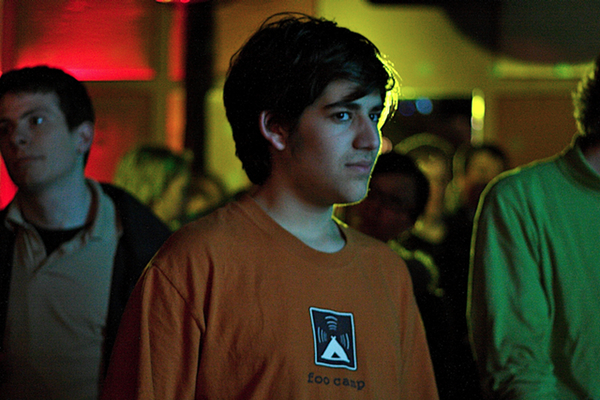 Wednesday was a strange day for me this week, unexpectedly dominated as it was by the public outcry over photo sharing service Instagram changing its terms of use to make it explicit that people’s photographs could be used for promotional purposes.
Wednesday was a strange day for me this week, unexpectedly dominated as it was by the public outcry over photo sharing service Instagram changing its terms of use to make it explicit that people’s photographs could be used for promotional purposes.
This is the first of a series of posts that document the media that I was involved with that day — eventually three radio spots and a story for Crikey, plus discussions with a journalist at ABC TV’s 7.30 for a story that ended up not happening — as well as the evolution of my own thoughts on the topic.
I’d gotten up early that morning to work on a Crikey story about the risks of big data, so I was already in media mode when I saw the tweets starting to flood out.
Instagram was claiming the right to sell your photos, they claimed — which I found most unlikely because they can’t sell what they don’t own, and social networks have long since given up trying to claim ownership over their users’ content. At least the ones that intend lasting more than a week online.
Sure enough, I looked at Instagram’s proposed new terms of use, and they actually made it quite explicit that they were not doing that. As I expected, they were seeking the right to use photographs in connection with promotions of unspecified nature — though they’d stated the fact that you wouldn’t be paid for this rather baldly.
To help us deliver interesting paid or sponsored content or promotions, you agree that a business or other entity may pay us to display your username, likeness, photos (along with any associated metadata), and/or actions you take, in connection with paid or sponsored content or promotions, without any compensation to you.
Moreover, it looked to me like Instagram’s existing terms of use already gave them this right, though the wording was vague.
… you hereby agree that Instagram may place such advertising and promotions on the Instagram Services or on, about, or in conjunction with your Content. The manner, mode and extent of such advertising and promotions are subject to change without specific notice to you.
In retrospect, I think both are worded rather vaguely, with a phrase like “in connection with” being able to cover a multitude of sins. But “without any compensation to you” is clear enough, and that obviously triggered the fears.
But Instagram’s actions weren’t unusual, they weren’t claiming ownership of your photos, and there was no need to panic — and that’s what I tried to stress in this first media spot, a chat with John Doyle on ABC Radio National Breakfast at around 0840 AEDT.
Podcast: Play in new window | Download (Duration: 6:57 — 3.7MB)
This audio is ©2012 Australian Broadcasting Corporation, and is an unedited copy of the original audio posted on their website.
![]() My Crikey story today on Telstra’s plan to trial the “shaping” of peer-to-peer internet traffic includes quotes from network engineer Mark Newton — but he said so many interesting things I though you should see his entire email.
My Crikey story today on Telstra’s plan to trial the “shaping” of peer-to-peer internet traffic includes quotes from network engineer Mark Newton — but he said so many interesting things I though you should see his entire email.

 By the time I got to doing my third radio spot about the Instagram saga, the issues were clear in my mind and I had a few well-rehearsed sound bites. So my final spot on
By the time I got to doing my third radio spot about the Instagram saga, the issues were clear in my mind and I had a few well-rehearsed sound bites. So my final spot on  Last week the High Court of Australia denied Optus leave to appeal the Optus TV Now decision, which means their “video recorder in the cloud” service isn’t legal — and that was the topic for my spot on
Last week the High Court of Australia denied Optus leave to appeal the Optus TV Now decision, which means their “video recorder in the cloud” service isn’t legal — and that was the topic for my spot on